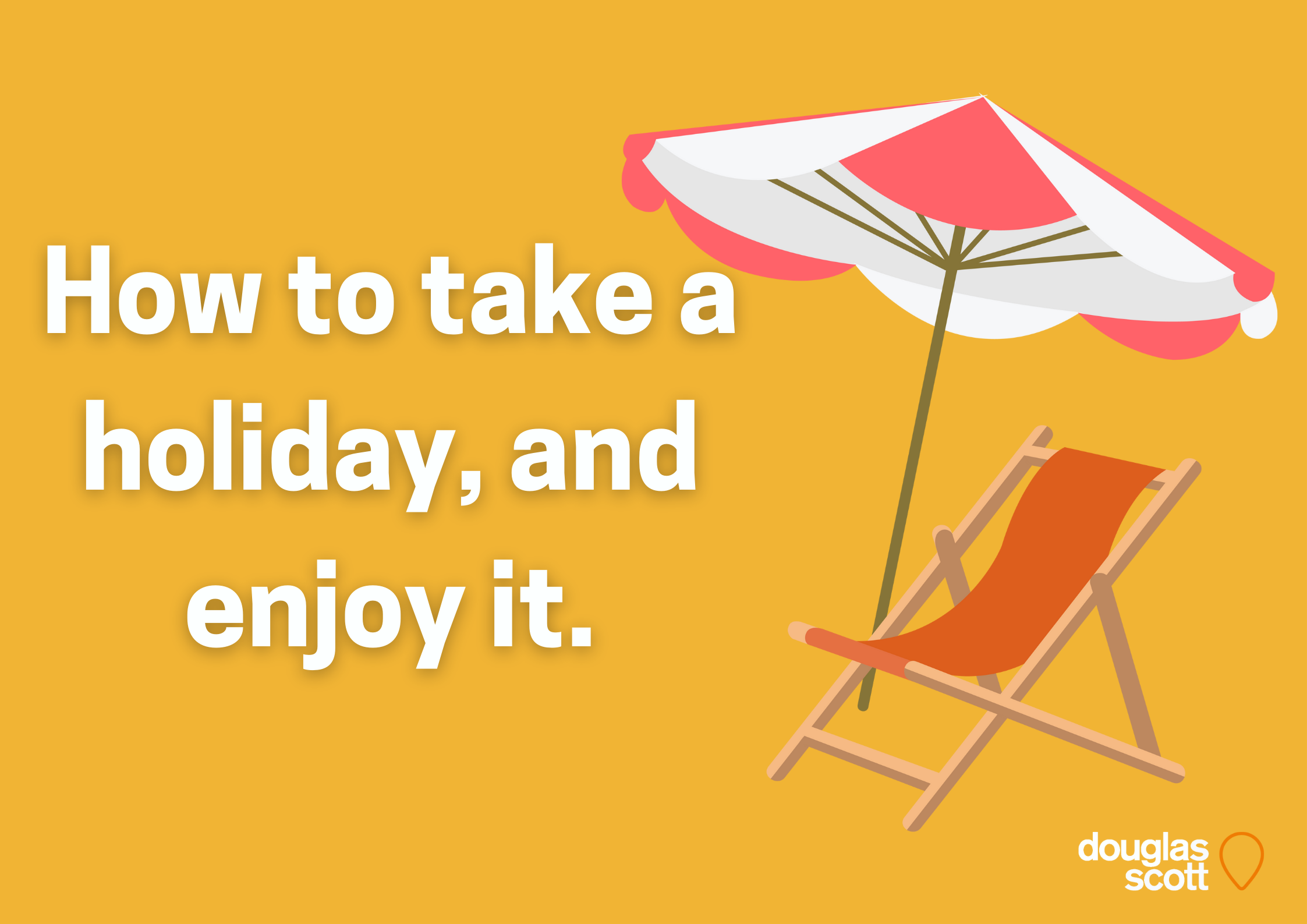How to Take a Holiday, and Enjoy It
Posted in Latest News on 11 Jul 2023

With summer now very much here, you may be thinking about taking a holiday. After all, who doesn’t love to get away from the stresses and strains of the office? In our recent salary survey, 42% of respondents had above statutory levels of holidays, and it was the third most valued benefit across all demographics and sectors. Clearly, it matters to people.
Completely disconnecting from work occasionally, has been proved to have genuine health benefits, and has been proved to lower the rate of burnout. However, if you don’t set clear enough boundaries before you go, you may end up finding yourself fielding calls, responding to emails and even trying to deal with work issues – and you end up not enjoying your holiday and returning to work without the rest and relaxation your body needs. Below are just a few helpful tips for switching off and unwinding fully – without having to worry about the office you’ve left behind.
This first tip may sound obvious, but it is easily overlooked – tell your manager you will be unavailable during your holiday. As I say, it may seem obvious, but if you don’t set a clear boundary like this before you go, people may end up contacting you, not knowing that you are taking time away. If needs be, try to put a plan in place, especially if you are in the middle of a project which is on a tight deadline. You don’t want to come back and must rush to complete everything because no one took on your work while you were away. Try to make sure this is collaborative as possible: the last thing you want is to stress out a poor colleague who has a whole load of extra work on top of a very full plate. Ultimately, it will help you, because you won’t end up receiving a phone call asking you to pause your time off to help at work. Making sure you get notes from your meetings is also important: if you do have any meetings scheduled during your holiday, make sure you get notes from whoever is hosting the meeting, so you know what you need to do when your back. If the meeting is being held remotely, you should be able to get a recording of it, so you won’t miss anything.
Of course, you want to put allowances in place, but the best way to stop you working on holiday is through out-of-office notifications. These can often be overlooked but are the best way to stop people contacting you while you are away, especially you have your work emails on your personal phone. One good tip is to try and include the contact name and address of someone who might be able to deal with their enquiry. Like with whoever takes on your work, you want to make sure that they are aware of what they need to do and are comfortable taking on the extra workload. Additionally, send out a final reminder the week before, just to reinforce that you will be away from the office, and not answering communications, whether this be to colleagues, your manager, or other members of the business. Remember as well to do the same for clients, as it can be easy to overlook them, and yet they are the most likely not to know you are going on holiday. Just make sure you set a firm boundary with them, because if you don’t you may find yourself engaging with work, and it is very difficult to switch off once you start answering emails and calls.
Ultimately, it’s about setting boundaries. Without setting boundaries, you’ll find the time off that you are well entitled to, and have worked hard for, being interrupted again and again. And, in the end, not having a proper holiday and a chance to recharge will mean that you won’t get the benefits of that time off, and your work may suffer because of it. Time off is important – so don’t let it be interrupted. Set those boundaries, try to get someone to cover your work and make sure to use the tools that notify people that you will be unavailable. Ultimately, if you can plan for your holiday, you find that you won’t get any notifications or interruptions until you get back.
Latest insight
-
Criminal solicitors – Are they the unhappiest legal sector?
18 Jun 2025 -
What motivates Employment solicitors to leave their roles?
03 Jun 2025 -
How happy are Residential Conveyancers?
29 May 2025 -
Is the Private Client market a static one?
28 May 2025 -
What can law firms do to protect mental health?
20 May 2025